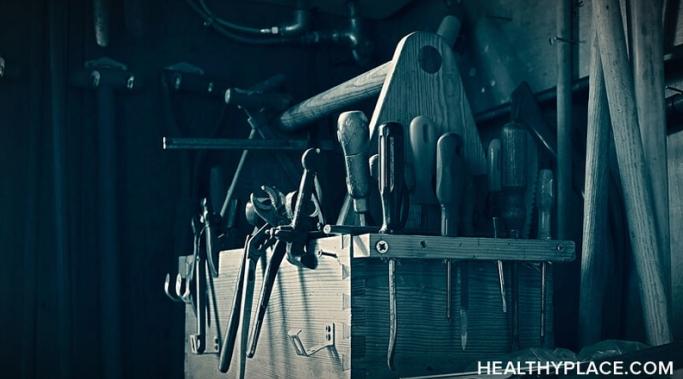Blogs
For some people, journaling can be a useful tool with which to process emotions and experiences related to self-injury and recovery. These tips for keeping a self-harm diary will help you create a helpful habit that you can use to support your healing process.
When you are trying to heal and recover from an abusive situation, one unfortunate circumstance that can result is survivor burnout. In my experience, it can sneak up without any warning and interfere with every aspect of life.
I’ve gone for a really long time without hearing schizoaffective voices. In fact, I’ve gone over four months without this disruptive schizoaffective symptom. I credit it to a psychiatric medication change.
Eating disorder recovery during life transitions can present a real challenge. As this final stretch of 2021 rounds the corner and another new year looms on the horizon, the inevitability of transition is at the forefront of my mind. But while this idea of change can often bear a negative connotation and cause stress levels to escalate, the change itself doesn't always have to bring chaos, fear, anxiety, or upheaval into your actual lived experience.
I think one of the most difficult aspects of coping with anxiety is dealing with the fear that is inherent to this experience. While fear and anxiety are not necessarily the same thing, they typically walk alongside one another, and that is why it can be helpful to analyze one in order to understand the other.
During the holiday season, one of the most talked-about topics is holiday shopping. Many people who struggle with anxiety find it to be overwhelming. Before I started my holiday shopping, I feared that some people would not like my gifts. I also worried about how much money I would spend. Now that I have finished shopping for two people, I do not feel as anxious. Here are some tips that helped me start my holiday shopping.
"Surviving Mental Health Stigma Blog" — that’s the name of this blog full of tips and advice to get through moments of stigma, overcome it, and so on. Often, that’s how I approach writing for this blog: what tips can I share? What have I gone through that might be useful to others? But then it struck me. Dealing with mental health stigma can quite literally be an act of survival. It’s not hyperbole. It’s not dramatics. Mental health stigma could literally lead to someone dying. I’ll elaborate. (Note: this post contains a content warning.)
I find pain destroys my ability to think. I find that once pain reaches a certain level, I can no long formulate rational thoughts, and all I can think about is the pain. I short, pain kills my brain. This feels like a curse for someone who uses her brain for a living. However, pain's penchant for affecting one's ability to think is hardly limited to me.
Sometimes, even when you are no longer the victim of verbal abuse, the lasting effects can hinder your mental health. Finding ways to deal with the possible symptoms of verbal abuse like anxiety and depression are critical for your path to healing if these symptoms prevent you from living a full and happy life. Box breathing may be able to help.
A self-harm tracker can be a useful tool in helping you begin the recovery process and maintain a self-harm sober streak over the long term. Let's take a look at how you can use a self-harm tracker in your own recovery journey and what information you might want to include in your own version.








